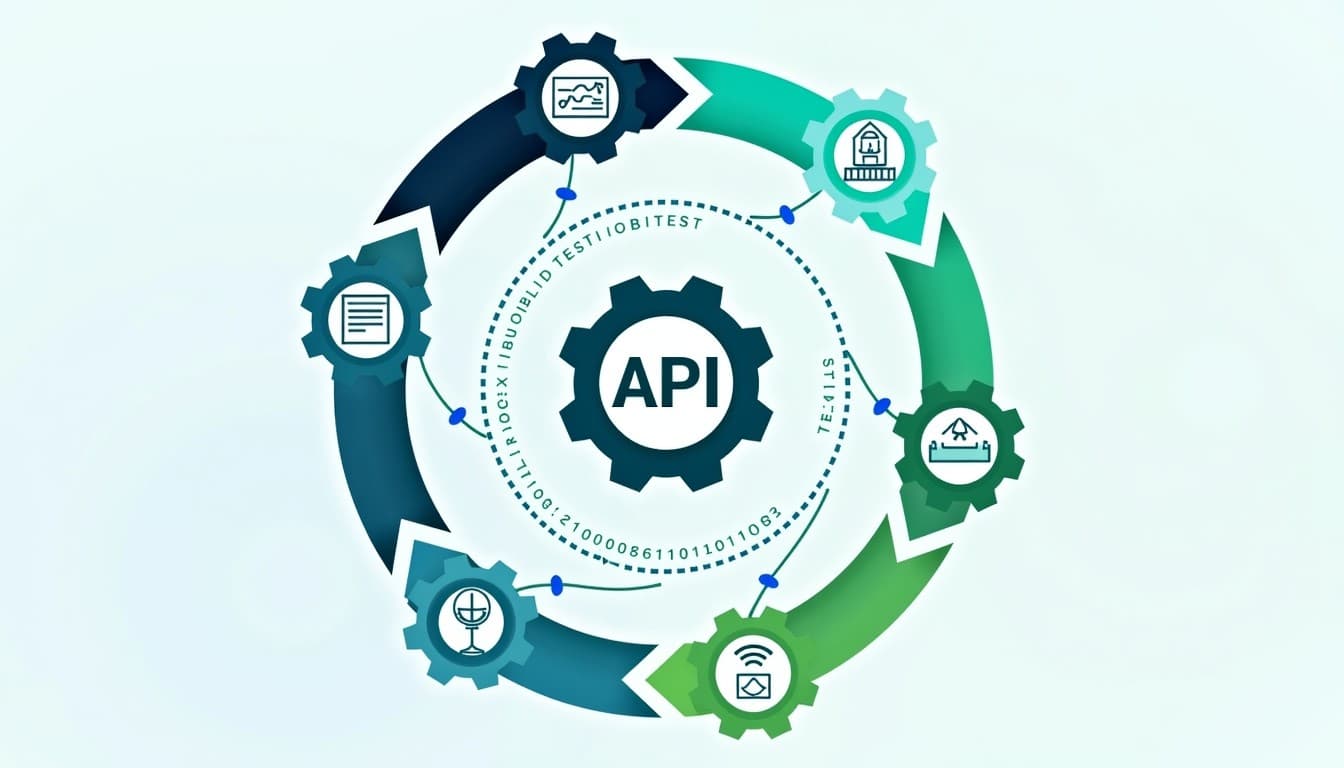
Phone Number Regex Go Validator
Use the Phone Number Regex Go Validator to test and validate phone number formats using Golang’s regexp package. This tool is perfect for developers and testers building signup flows, form validations, or telecom apps. Instantly check if your regex correctly matches mobile numbers, international formats, or specific digit patterns—without writing extra code.
Need more test inputs? Try our Phone Number Generator, Zipcode Generator, or Address Generator to simulate real-world form data.
Phone Number Regex Go Validator - Documentation
What Is Phone Number Regex in Go?
In Go (Golang), regular expressions are handled via the regexp standard library. Validating phone numbers involves checking for specific structures such as:
Country codes (e.g. +91, +1)
Area codes
Optional separators like hyphens, spaces, or parentheses
Variable number lengths depending on country or region
Phone number regex is especially useful in:
Form validations during user signups
Backend checks in APIs or databases
SMS/call communication systems
Telecom software and mobile apps
Core Features & Constructs (Go Regex)
Metacharacters
.: Matches any character except newline. Example: /.23/ matches "a23", "x23"^: Anchors to the start of the string. Example: /^+91/ matches "+91xxxxx..."$: Anchors to the end of the string. Example: /123$/ matches ending in "123"|: Acts as OR. Example: /landline|mobile/ matches either word
Character Classes
[0-9]: Matches any digit from 0 to 9[^0-9]: Matches any non-digit character[a-zA-Z]: Matches any letter (lowercase or uppercase)
Predefined Classes
\d: Matches a digit. Equivalent to [0-9]\D: Matches a non-digit character\s: Matches a whitespace character\S: Matches any non-whitespace character
Quantifiers
*: Matches zero or more occurrences+: Matches one or more occurrences?: Matches zero or one (optional){n}: Matches exactly n times{n,}: Matches at least n times{n,m}: Matches between n and m times
Limiting the Number of Regex Matches
If you want your regular expression search in Go to return only a limited number of matches, simply pass a non-negative integer as the second argument to functions like FindAllString or FindAllStringSubmatch. This number determines how many matches will be returned, starting from the beginning of the input string. For example, using FindAllString("peach punch pinch", 2) will return just the first two matches it finds, instead of all possible results.
This approach is handy when you're only interested in a subset of matches—like grabbing the first couple of phone numbers from a long block of text—while ignoring the rest.
Regex Pattern Example for Phone Numbers
Here’s a common regex pattern to validate international phone numbers:
^\+?[1-9]\d{1,3}?[-.\s]?\(?\d{1,4}?\)?[-.\s]?\d{1,9}([-.\s]?\d{1,9})?$This matches:
Country codes like +91, +44, +1
Optional separators like hyphens, dots, and spaces
Parentheses for area codes
Common Methods on Go's regexp Objects
Once you’ve compiled a regular expression using Go’s regexp package, a suite of helpful methods becomes available for matching, searching, extracting, and transforming strings (or byte slices). Here’s a glance at the core functionality:
MatchString / Match: Quickly check if your pattern matches part or all of a string (or
[]byte). Perfect for basic validation scenarios, like confirming a phone number matches a format.FindString / Find: Return the first substring (or byte slice) matching the pattern from the input.
FindStringIndex / FindIndex: Instead of returning the text, these provide the start and end positions of the first match—useful if you need to manipulate or highlight matches.
FindStringSubmatch / FindSubmatch: Grab not just the main match, but also any capturing groups defined in your pattern—ideal if your regex has parentheses for finer extraction.
FindStringSubmatchIndex / FindSubmatchIndex: Like above, but returns indices for all the captured groups.
All Variants (e.g., FindAllString, FindAllStringSubmatch, etc.): These scan the entire input, returning all matches or submatches. You can limit the number of results by passing a count.
ReplaceAllString / ReplaceAll: Efficiently replace all matching substrings in your input with another value—great for data cleaning or masking sensitive info.
ReplaceAllFunc: Apply a function to each match, letting you transform matched text dynamically (think uppercasing, hashing, or formatting phone numbers).
Additionally, when storing regex patterns in global variables, use MustCompile instead of Compile. This ensures that the pattern is valid at program startup and will cause a panic if there is a syntax error, helping you catch issues early.
With these methods, you’ll be well-equipped to tackle everything from simple validations to complex string manipulations right inside your Go applications.
Go Code Examples
Example 1: Basic Phone Validation
package mainimport ( "fmt" "regexp" )
func main() { pattern := regexp.MustCompile(^\+?[0-9]{10,15}$) phone := "+14155552671" fmt.Println("Valid Phone:", pattern.MatchString(phone)) }
Try similar patterns in the Go Regex Tester
Example 2: Phone Numbers With Separators
package mainimport ( "fmt" "regexp" )
func main() { pattern := regexp.MustCompile(^$begin:math:text$?\\d{3}$end:math:text$?[-.\s]?\d{3}[-.\s]?\d{4}$) phone := "(415) 555-2671" fmt.Println("Valid Format:", pattern.MatchString(phone)) }
Generate real numbers with Phone Number Generator
Example 3: Form Field Testing with Area Code
package mainimport ( "fmt" "regexp" )
func main() { input := "+91-9876543210" regex := regexp.MustCompile(^\+91[-\s]?[6-9]\d{9}$) fmt.Println("Indian Mobile Number Valid:", regex.MatchString(input)) }
Combine with Address Generator for full user test data.
Getting the Indexes of Matches and Submatches in Go
To retrieve the exact starting and ending positions of matches—and any submatches—within a string, use the FindStringSubmatchIndex method. For example, you might write:
fmt.Println(r.FindStringSubmatchIndex("peach punch"))This function call will return a slice of integers indicating the byte indexes for the overall match, followed by each capturing group’s match. For anyone familiar with Python’s re module, this behaves like the span() method, giving you a handy way to locate precisely where each match lands in your input.
Finding the First Match in a String
To grab the first substring that matches your regular expression, use Go’s FindString() method. Just call it on your compiled regexp object, passing in the text you want to search. For example:
pattern := regexp.MustCompile([a-zA-Z]+)
result := pattern.FindString("peach punch")
// result will be "peach"This returns the very first piece of the input string that matches the pattern—helpful for pulling out leading names, words, or, in our case, the initial phone number. If there’s no match, it simply returns an empty string.
You can experiment with different inputs in the https://qodex.ai/all-tools/go-regex-tester to see how various patterns behave.
Replacing Substrings Using Regular Expressions in Go
One of the handy features of Go's regexp package is the ability to not just match patterns, but to replace matching parts of a string as well. This is particularly helpful for cleaning up user input, formatting numbers, or anonymizing sensitive data.
Basic Replacement with ReplaceAllString
Suppose you want to remove all occurrences of a certain word—like replacing "peach" with an empty string:
package mainimport ( "fmt" "regexp" )
func main() { r := regexp.MustCompile(peach) result := r.ReplaceAllString("a peach", "") fmt.Println(result) // Output: a }
You can swap in any pattern or replacement as needed—think removing punctuation, blanking out digits, or standardizing formats.
Advanced: Replacing with Custom Functions
Need more control? ReplaceAllFunc lets you transform each match however you see fit. For example, you might want to capitalize matched words:
package mainimport ( "bytes" "fmt" "regexp" )
func main() { r := regexp.MustCompile([a-z]+) text := []byte("a peach") result := r.ReplaceAllFunc(text, bytes.ToUpper) fmt.Println(string(result)) // Output: A PEACH }
This approach is perfect for situations where you want to mask user information (like replacing part of a phone number with asterisks) or apply formatting rules in bulk.
Now that you know how to replace substrings using regex in Go, let’s look at a few tips to get the most out of your regular expressions:
Transforming Matched Text During Replacement
Need to modify only parts of a string that match your regex? Go’s regexp package makes this easy with ReplaceAllFunc. Instead of just swapping in a static replacement, you can apply a custom transformation to anything that matches your pattern.
For example:
Let’s say you want to shout (capitalize) every fruit in a string:
package mainimport ( "bytes" "fmt" "regexp" )
func main() { r := regexp.MustCompile(peach) in := []byte("a peach and another peach") out := r.ReplaceAllFunc(in, bytes.ToUpper) fmt.Println(string(out)) // Output: a PEACH and another PEACH }
This approach is handy when you want to encrypt, sanitize, mask, or otherwise process matching text on the fly—not just swap it out. Experiment in the Go Regex Tester and see how you can use functions to tailor your output to your needs.
Working with Byte Slices in Go Regex
In Go, regex methods are flexible—they don't just operate on strings. If your data is stored as a byte slice ([]byte), you can use the same compiled regular expressions by calling methods like Match() instead of MatchString().
For example:
pattern := regexp.MustCompile(peach)
text := []byte("peach")
fmt.Println("Matches byte slice:", pattern.Match(text))This approach is especially handy when processing raw input, binary data, or when performance matters (since no conversion to string is needed). Functions like Find(), FindAll(), and ReplaceAll() also have byte slice variants, working directly with your []byte data. Use these wherever you already work with raw request bodies or file bytes in your Go projects.
Pro Tips
Always use regexp.MustCompile() for static patterns to avoid runtime errors.
Always use for static patterns to avoid runtime errors.
When you need to define regular expressions as global variables, stick with instead of . Unlike , which returns an error you’d need to handle, will panic immediately if your pattern is invalid—perfect for surfacing mistakes early during development.
For example: go r := regexp.MustCompile("p([a-z]+)ch") fmt.Println("regexp:", r)
This approach is especially useful for patterns you know won’t change at runtime, keeping your codebase cleaner and safer.
Use FindStringSubmatch() if you want to extract parts like area codes or extensions.
For more advanced matching, you can fetch not just the first match but all matches in a string. Try using to get every occurrence of your regex pattern, or to extract all groups across multiple matches. If you’re interested in the index positions of these matches (or their submatches), there are variants like and that provide the start and end positions for each match within the string.
These "All" variants work just like their single-match counterparts, but they operate across the entire input, making them perfect for cases where you might have multiple phone numbers or patterns in your data. For example:
goCopyEditpattern := regexp.MustCompile() input := "Call 415-555-2671 or 408-555-1234" fmt.Println(pattern.FindAllString(input, -1))This is especially useful for bulk validation or extracting all relevant information from longer text fields.
Avoid overly greedy expressions like .*—use quantifiers like {10,15} for accuracy.
Validate with actual test data from tools like the Phone Number Generator or Username Generator.
Use (?i) prefix for case-insensitive matching when needed.
Using these techniques, you can not only check if an entire string matches your pattern, but also extract meaningful subparts, such as area codes, extensions, or specific user information—making your regex validation and data extraction much more flexible and robust.
Combine with These Tools
Phone Number Generator: Generate dummy phone numbers for validation.
Email Generator: Pair with email for signup forms.
Username Generator: Use in user profile creation.
Address Generator: Simulate full contact forms.
Password Generator: For complete user registration flow testing.
UUID Generator: Combine for device/user IDs.
Use Cases
Signup form validation
E-commerce mobile verification
Telecom API testing
Fake data generation for QA teams
Data migration and normalization
Regex for Other Languages
JavaScript: Use in JavaScript Regex Tester
Java: Try in Java Regex Tester
Python: Test in Python Regex Tester






